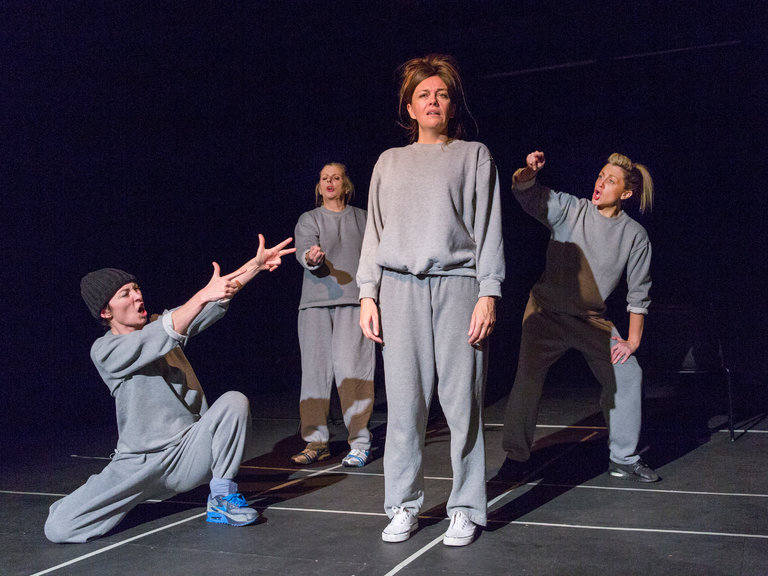John and Daisy’s mentoring story
The National Criminal Justice Arts Alliance’s (NCJAA) professional mentoring scheme provides opportunities for early career arts in criminal justice practitioners to get support and guidance from experts within the field. Mentors are also offered professional development opportunities, including at the Guildhall School of Music and Drama.
Last year, mentee Daisy Lees, Director of Arts La’Olam, was matched with mentor John Speyer, Director of Music in Detention. In this blog they talk about what they learnt from the scheme.
Why did you join the NCJAA professional mentoring scheme?
Daisy: Although I have worked in arts production for almost 20 years, I was about to embark on my first ever art project in a prison – running nine workshops to create a mural for Ipswich Waterfront – and thought it would be a good idea to access additional support.
John: I thought I had some useful experience and that I would learn from the process too. I’d done a bit of mentoring before but mostly in a less structured way, so mentoring within a properly organised scheme with some guidance appealed to me.
What did you work on together?
Daisy: We went through personal preparation for the experience of going in to a prison and weighed up careful project planning versus artist / participant leadership and ownership of the project. In other sessions we covered production style, interpersonal dynamics and effective reporting and evaluation.
John: Daisy is an experienced producer, but this was her first prison project and we talked before it started about what it might be like to work in a prison and how that would affect the project. Once it was underway I think our sessions gave Daisy the chance to reflect on the project as she went along. We also spent time on expectations and rules of the prison setting, creative direction and evaluation. There was a big and quite complicated team on this project, and her role in it was central, so we talked sometimes about working with all the various colleagues and partners.
How did having a mentor help you to achieve your goals?
Daisy: John offered encouragement and the benefit of his experience to support and guide me through my first prison project. Our sessions worked as an opportunity for me to process the very intense experience, unpack it and understand it better. His sessions helped me to feel increased confidence in my work as it developed.
What is your favourite thing about being a mentor on the NCJAA scheme?
John: When it works well it’s a two way street, and I really like that. From my perspective that means I get the chance to share things I’ve learned in my work with someone else, find out about their area of work, and learn things from our interaction that I can take back into the day job. In this case I was wary of how much I could offer because my work is in immigration detention centres rather than prisons, but my experience transferred well. It was good to explore work in visual arts instead of music, my usual field, and to see how much the choice of artform can shape how a project works for people.
The NCJAA scheme offers guidance and training to the mentors and that’s been really valuable. For example, I’ve learned to pitch in less with my own experience and spend more time paying attention to how the mentee sees an issue or a problem, but also not to be shy about sharing things I know because that’s what professional mentoring is for. I’ve also picked up methods and ideas that I use in my day job at Music in Detention, for example in how I do supervision with colleagues.
What would you say to anyone thinking of becoming a mentee on the scheme?
Daisy: This is an invaluable service and absolutely necessary to any freelancer or independent arts project producers working without a manager. I would strongly advise a mentorship scheme for people starting out in creative projects in prisons. It really helps to talk and find humour and share stories that are found in this line of work. Working with people with complex needs leads to complex conversations. It was really inspiring to talk to John, who is more experienced and has adjusted well to work both on the ‘inside’ and ‘outside’ – and the space in between.
John: I think our sector is full of dedicated people who seldom have enough time or resource. It’s not always easy to get support, find time to reflect, and to share what we learn. So, if you have a plan or an idea but could do with some help to work it up and see it through, I think the mentoring scheme can offer something really special.
Apply for a mentor
Applications for new mentees on the 2020 scheme are now open, and close on 9th December 2019. Find out more and apply here
Image: Stop Loan Sharks Mural, courtesy of EVEWRIGHT






